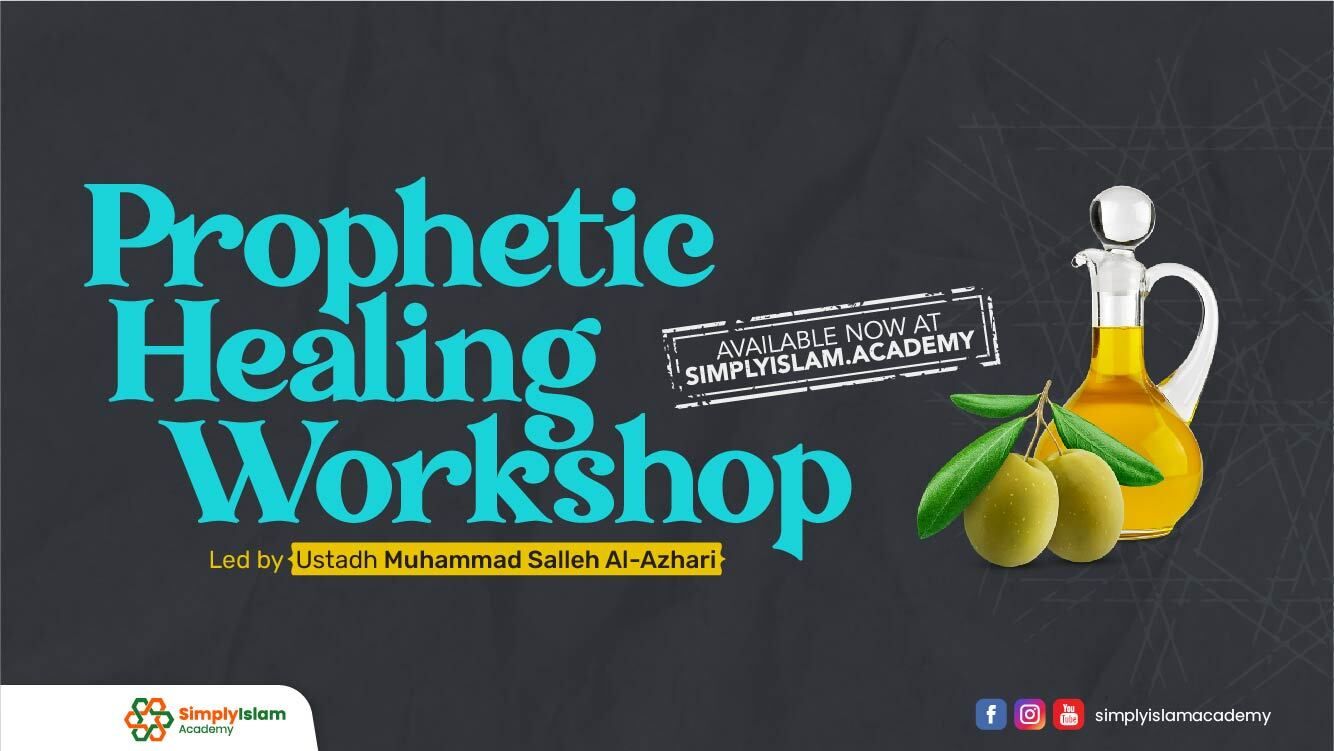Islam and Mental Health: a Step-by-step guide towards Contentment
-
Lily Syahirah Ramlan
-
26 July 2021
Islam and mental health are highly correlated but unfortunately, this perception is widely alienated in most Muslim households due to cultural influence. It seems to be a taboo, where most Muslims families almost never discuss their feelings. Instead, they expect all members to obey rules, become what is expected of them and conceal their true emotions.
Recently, more people are coming forward to destigmatise the taboo of Islam and mental health, and it has become a wake up call to Muslim communities. Many mental health advocates are helping out those who are struggling, and hotlines are established as a medium for victims to communicate.
In this article, we will be discussing the meaning of Islam and mental health, what the Qur’an and hadith say about mental health, and lastly; steps towards becoming a better and happier person, Insha’Allah.
What is mental health?
According to WHO, “Health is a state of complete physical, mental and social well-being and not merely the absence of disease or infirmity.” An important implication of this definition is that mental health is more than just the absence of mental disorders or disabilities.
Mental health is a state of well-being in which an individual realizes his or her own abilities, can cope with the normal stresses of life, can work productively and is able to make a contribution to his or her community.
However, what is the relation between Islam and mental health? From the Islamic perspective, mental health is directly related to a human being’s ability to actualize their primordial spiritual purpose. All human beings are created to tread a path that will ultimately ensure their salvation in the afterlife and their ability to acquire God’s pleasure. So, to reach true and ultimate happiness is to realise our purpose in this world: to please Allah the Almighty and His Messenger, and to work towards achieving that purpose until our last breath.
What is The Role of Iman in Mental Health?
When it comes to mental health in Islam, Iman goes hand in hand with our mental health, and it affects how we think, feel and do things.
When one has strong conviction in Allah’s Divine Wisdom, Mercy, Justice, and Plan, it can provide a deep sense of hope, never to give up in the face of adversity, even during life’s toughest moments.
It cultivates contentment in Islam, known as redha, by shifting focus from what we lack to what we have, encouraging gratitude and reliance on the Divine.
Iman doesn't mean eliminating hardships or sadness, but it gives meaning to them and reminds us that every trial has a Divine Purpose and that ease comes with hardship.
Belief in Qadr (Divine Decree) helps many Muslims accept life’s challenges without despair. So, let’s work towards improving our life and be happy!
When one has strong conviction in Allah’s Divine Wisdom, Mercy, Justice, and Plan, it can provide a deep sense of hope, never to give up in the face of adversity, even during life’s toughest moments.
It cultivates contentment in Islam, known as redha, by shifting focus from what we lack to what we have, encouraging gratitude and reliance on the Divine.
Iman doesn't mean eliminating hardships or sadness, but it gives meaning to them and reminds us that every trial has a Divine Purpose and that ease comes with hardship.
Belief in Qadr (Divine Decree) helps many Muslims accept life’s challenges without despair. So, let’s work towards improving our life and be happy!
What does the Qur’an and Hadith say about mental health?
The Qur’an and hadith does not mention the term ‘Islam and mental health’ specifically. However, there is an abundance of verses and narrations which are related to the importance of health and the acknowledgement of distress in human beings. The verses below are just a few:
وَلَنَبْلُوَنَّكُم بِشَيْءٍ مِّنَ الْخَوْفِ وَالْجُوعِ وَنَقْصٍ مِّنَ الْأَمْوَالِ وَالْأَنفُسِ وَالثَّمَرَاتِ وَبَشِّرِ الصَّابِرِينَ
And We will surely test you with something of fear and hunger and a loss of wealth and lives and fruits, but give good tidings to the patient. [Qur’an, 2:155]
Surely, we will all be tested some way or another. Nobody will ever stay complacent with their lives and have no problem at all! Allah the Merciful gives us tests to cure our corrupted souls. The bitterness of the world can only bring us closer to Him.
فَإِنَّ مَعَ ٱلْعُسْرِ يُسْرًاإِنَّ مَعَ ٱلْعُسْرِ يُسْرًا
“For indeed, with [every] hardship, there is relief. Indeed, with [every] hardship, there is relief” [Qur’an, 94:5-6].
Have you ever gone through an emotional turbulence one day, and when that problem has been resolved, you feel much stronger and emotionally mature? Problems won’t last, and there is always a solution to every problem. As the old saying goes, what does not kill you makes you stronger.
"There are two gifts which many men are unmindful about – good health and leisure”. [Prophet Muhammad ﷺ]
The most overlooked blessings we are endowed with: health and leisure. Sometimes, we never know we need those two until they’re gone. Good health isn’t just about physical health, but it encompasses all; emotional, mental, spiritual and physical. Overall good health can do wonders and possibilities are endless for you!
Try Our Best-Selling Courses
What Are Some Common Mental Health Issues?
Understanding the types of mental illness or challenges people face is key to removing the stigma and offering the right support.
Stress
Stress is a common issue that affects people at all stages of life. There are various triggers to stress, and Islam offers practical tools to manage it: regular prayer, mindfulness through dhikr, and maintaining a balanced lifestyle.
Generalized Anxiety Disorder
This involves persistent and overwhelming worry of the uncertainty. From an Islamic lens, trust in Allah Almighty and reciting relevant Quran for mental health, such as Surah Al-Inshirah and Ayat al-Kursi, can soothe anxiety. However, professional therapy is also encouraged.
Panic Attacks
These are sudden episodes of intense fear that may cause physical symptoms such as heaving, cold sweat, and more. Spiritual grounding, deep breathing, and seeking therapy are important. It’s vital to recognize that panic is not a sign of weak faith!
Major Depressive Disorder
Islam doesn’t dismiss the reality of depression, and to take this lightly or ignore someone who goes through it is a sin. The Prophet Muhammad ﷺ himself experienced deep grief, especially during the ‘Year of Sorrow.’ Seeking therapy, using medication when needed, and drawing strength from Quran for mental health are all valid steps.
Marital Issues
Marriage is built on love and mercy, but strained relationships can cause immense emotional pain. Islam emphasizes mutual compassion in marriage. Counseling, whether faith-based or clinical can help couples navigate their struggles with empathy and understanding.
What Is The Connection Between Mental Health and Islam?
Spiritual Resilience
Islam nurtures emotional endurance. Acts like prayer, fasting, Qur’an recitation, and dhikr provide a spiritual "toolkit" to build resilience in times of crisis.
Role of Patience
Patience s a cornerstone of contentment in Islam. It isn’t about suppressing pain but enduring it with faith and hope. True sabr allows for grieving and healing, while still trusting in Allah’s Divine Wisdom.
H3: Evil Eye (Ayn/Nazar)
Some attribute sudden emotional or physical distress to the evil eye. Islam acknowledges this but advises balance: seeking protection through du‘a and Quran for mental health while also addressing symptoms through medical or psychological care.
Spiritual Possession
Some may suspect jinn possession when facing severe emotional symptoms. While Islamic tradition accepts this possibility, it's important to avoid assumptions and first explore psychological causes. Islam encourages using all means, spiritual and medical, for healing.
A Step-by-Step Guide Towards Contentment
1. Acknowledging the truth about mental health
The biggest culprit of all comes from within us. You might have this strange feeling of denial, that everything will be okay and life will go as planned. You might deduct all possibilities of failures and expect perfection in life, but in reality, this can only harm your mental health.
The first step to contentment is accepting that tests are a part of life. Sadness, anxiety, worry, fear are all emotions that we experience to a certain degree in our lives. Even the blessed Prophets (Peace be upon them all) went through these emotions and there is much to learn from their stories, which we find in the Qur’an.
2. Socialise, Socialise, Socialise!
Socializing is good for your mind and body. The world can be a harsh place to live alone for people who suffer from mental health issues, but when you have others to talk to, it becomes much easier.
“We are social animals by nature, so we tend to function better when we’re in a community and being around others,” Dr. Sawchuk says.
Socializing not only staves off feelings of loneliness, but also it helps sharpen memory and cognitive skills, increases your sense of happiness and well-being, and may even help you live longer. In-person is best, but connecting via technology also works.
If your number one issue is feeling lonely and you have no one around you at the moment, try and reach out to your friends, family members, relatives, or you can even join any support group or organisation to keep you around positive people.
3. Start taking care of your body
Self-care is underrated! People say that taking care of ourselves is just a waste of time, but the Qur’an mentions that self care is just as important as taking care of your brothers in Islam.
Some people who struggle with mental health eat very poorly and go to the extent of suffering from food disorders that affect their physical health in the long run. The Qur’an emphasises you to take care of your body by consuming what is healthy and nutritious for you.
“So eat of the lawful and good food which Allah has provided for you, and be grateful for the favour of Allah…” [Qur’an 16:114]
“Eat and drink and do not commit excesses; indeed He does not love those who are excessive.” [Qur’an 7:31]
Remember, try to include Sunnah foods in your life such as dates, nuts, barley, honey, milk and much more. All of these foods have their own nutritional value which can enhance your bodily functions.
4. Help Others
It may seem ironic to help others while we need the help ourselves. However, it is scientifically proven that helping others enhances our moods and it makes us feel better overall. Try and help out whenever you can, like giving charity, prepare meals for your family, do household chores…the list goes on.
“A charity is due for every joint in each person on every day the sun comes up: to act justly between two people is a charity; to help a man with his mount, lifting him onto it or hoisting up his belongings onto it, is a charity; a good word is a charity; and removing a harmful thing from the road is a charity.” [Prophet Muhammad ﷺ]
“Give charity without delay, for it stands in the way of calamity.” [Prophet Muhammad ﷺ]
5. Remember that Allah is always with you
One of the ways we can remember Allah is through dhikr, du’a, contemplation, or prayer. The entire existence is constantly worshipping Allah the Almighty, and remembering and surrendering to Allah is our natural purpose and state of mind. Therefore, it makes sense that remembering Him would bring peace to our hearts.
Let your heart out. Speak your mind and pour it all as if He’s right there by your side.
“And indeed We have created man, and We know whatever thoughts his inner self develops, and We are closer to him than (his) jugular vein.” [Quran 50:16].
6. Practice Gratitude
“Be grateful!”, “You’re lucky you don’t have to…”, “There are people out there who..”
These statements can be ruthless and dismissive, even harmful for us. Victims of mental illness could no’t even get a peace of mind hearing these repetitive so-called encouragement over and over again.
Some of us don’t even know how to practice mindfulness and gratitude due to our traumatic childhood, or whatever that stems from the environment around us. To overcome the scarring past, you should practice mindfulness and gratitude, and InshaAllah, if you get to do this as a routine every day, you will be more aware of the things you should be grateful for.
Here are some of the helpful journal applications to help you get started:
Here are some of the helpful journal applications to help you get started:
- Moodpath: Depression & Anxiety
- TalkLife: Depression & Anxiety
- Daylio Journal
- Youper
- What’s Up?
- Happify
7. Realising that you are responsible for your own happiness
The past can hurt, and some of our parents…aren’t really the kind of role models we’re looking for. However, instead of pinning them down and blaming them for our mental illnesses, it does nothing in reality.
We should be responsible for our own happiness and try our best to fix what is broken. Blaming people is just an endless cycle of toxicity and the only way out of it is to always be the bigger person. Learn from your mistakes, past trauma, grow and mature.
8. Ask for help
Above all, never think that you have to go through hardship alone. Part of taking care of your mental health is knowing when to ask others to help you take care of it. Never think of seeking help as an act of the weak or vulnerable. It is completely okay to find help to be a better person.
Allah the Merciful is always on your side, but don’t forget to reach out to your family and friends who you trust. If you don’t feel you can talk to them, try to consult your local GP and get a certified counsellor to help you break down your anxieties and alleviate contentment within you.
Mental Health Issues Are Not a Sign of Weak Iman
“Oh you’re not praying enough! You have a weak Iman! That’s why you’re miserable!”
These are some of the most harmful claims and accusations one can make on someone who’s going through emotional turbulence.
It’s a harmful myth that mental illness and Islam are incompatible. Many righteous people, including the Prophets, experienced grief, fear, and sadness. These emotions are human, not signs of failing faith.
Muslims are encouraged to pursue health and Islam as part of their devotion. Seeking therapy or treatment for emotional struggles is a responsible and commendable act. Iman can be a source of comfort, not a barrier to seeking help.
These are some of the most harmful claims and accusations one can make on someone who’s going through emotional turbulence.
It’s a harmful myth that mental illness and Islam are incompatible. Many righteous people, including the Prophets, experienced grief, fear, and sadness. These emotions are human, not signs of failing faith.
Muslims are encouraged to pursue health and Islam as part of their devotion. Seeking therapy or treatment for emotional struggles is a responsible and commendable act. Iman can be a source of comfort, not a barrier to seeking help.
Conclusion
Islam and mental health always go together because a happy soul reflects one’s feelings, thoughts and intentions.
Mental health in Islam is not taboo; it’s a reflection of the human condition and deserves care, empathy, and support.
Combining faith with professional treatment through counseling, medication, and Quran for mental health can lead to meaningful healing. And above all, remember: struggling doesn’t make you any less faithful. It just makes you human.
Mental health in Islam is not taboo; it’s a reflection of the human condition and deserves care, empathy, and support.
Combining faith with professional treatment through counseling, medication, and Quran for mental health can lead to meaningful healing. And above all, remember: struggling doesn’t make you any less faithful. It just makes you human.
FAQs
Is it permissible to seek therapy or counseling in Islam?
Yes, it is permissible and. It is considered worship to find means to heal yourself physically, mentally, emotionally and spiritually.
What does Allah say about mental health?
The Qur’an speaks extensively about the inner state of the heart and soul. Verses like “Verily, in the remembrance of Allah do hearts find rest” (13:28) reflect the divine understanding of emotional well-being.
How does Islam affect mental health?
Islam offers practices that support mental wellness: daily prayer, fasting, gratitude, and a strong sense of purpose. These acts nurture contentment in Islam and help manage stress and anxiety.
Can mental health struggles affect my Iman?
Yes, just as physical illness can impact religious observance. However, Allah is Most Merciful and understands your struggles. Experiencing mental illness does not lessen your faith.
How can I use my faith to support my mental health?
Maintain regular spiritual practices, seek support from your community, recite Quran for mental health, and do not hesitate to consult a therapist.
Subscribe to Our Newsletter
Stay updated on our free courses, promotions, events and more!
Thank you!
Related Courses
About The Author:
Written By:
Lily Syahirah Ramlan
Lily Syahirah is a Content Writer of SimplyIslam Academy based in Selangor, Malaysia. She recently graduated with a Bachelor's Degree of Education (Teaching English as a Second Language) from International Islamic University Malaysia in 2020. She is actively invovled in public speaking, English language debates, poetry and theatre and loves to express her work through writing. Her love for language arts and imagination has led her to produce, direct and write experimental plays she's passionate about during her degree years. She was also actively invovled as a Master of Ceremony (Emcee) where she hosts minor and major events in IIUM.
About Us
SimplyIslam Academy, a subsidiary of SimplyIslam.sg, is an online Islamic education centre, delivering quality Islamic courses via online since early 2021.
The online Islamic school provides indispensable learning on the various sciences of Islam, covering Qur’an, Hadith, Sirah, Fiqh, Tasawwuf, and others.
The online Islamic school provides indispensable learning on the various sciences of Islam, covering Qur’an, Hadith, Sirah, Fiqh, Tasawwuf, and others.
Follow us
Useful Links:
Thank you!

Learn Anytime, Anywhere
Copyright © SimplyIslam Academy. All Rights Reserved.
Try Our Free Online Islamic Classes Today
Enter your email and we’ll send you notifications on our free classes.
Thank you for subscribing to our newsletter!
Try Our Free Online Islamic Classes Today
Enter your email and we’ll send you notifications on our free classes.
Thank you for subscribing to our newsletter!




